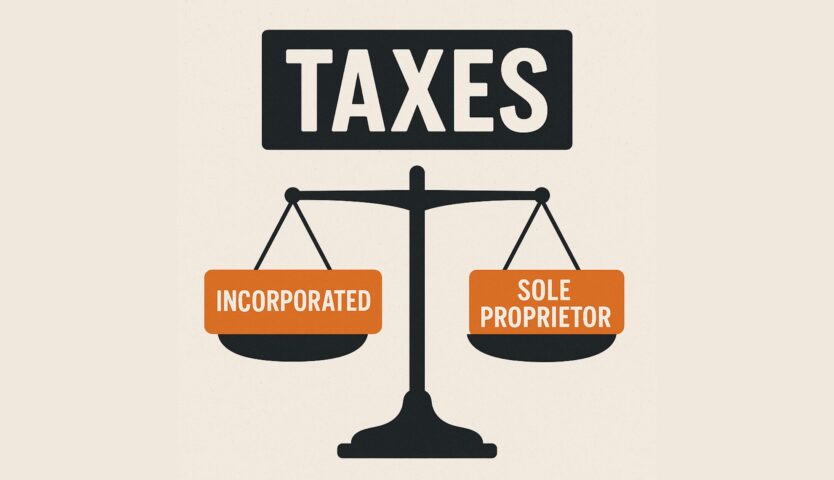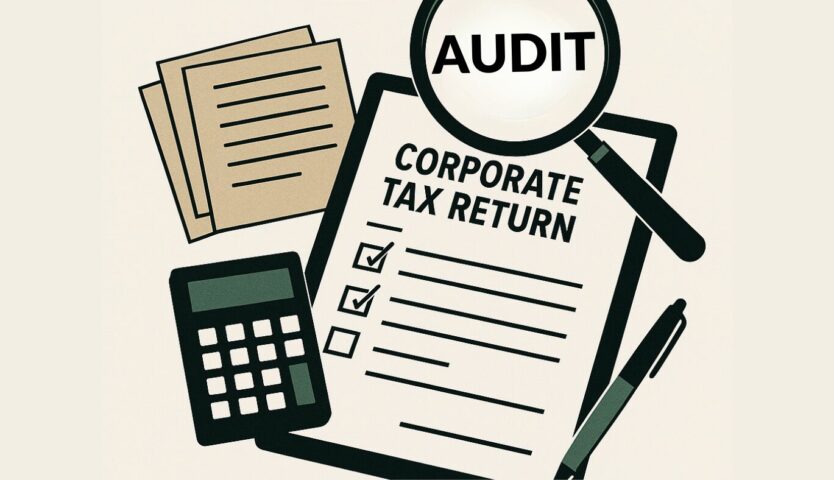
Trying to decide between incorporating or staying a sole proprietor?
When it comes to your corporate tax return, the structure you choose can make a big difference in what you owe and what you keep.
At Liu & Associates, we help business owners understand how each option impacts income splitting, deductions, and long-term savings.
Here’s what you need to know before tax season hits.
The Key Differences Between Business Structures in Canada
A sole proprietorship is the simplest setup, where the business and owner are legally the same.
Incorporated businesses are treated as separate legal entities, which changes how income is taxed and how liability is handled.
Incorporation involves more paperwork and costs but opens the door to more tax planning opportunities.
Each option has its own pros and cons, depending on your income level, business goals, and risk tolerance.
Corporate Tax Rates vs. Personal Tax Rates
One of the biggest differences between business structures is how your income is taxed.
Sole proprietors pay personal income tax on all profits, which can push them into higher tax brackets as income grows.
Incorporated businesses pay corporate tax, which is often lower and can offer significant savings when profits are retained in the business.
How Sole Proprietors Are Taxed
Sole proprietors report business income on their personal tax return, and all profits are taxed at their individual rate.
This can lead to a larger tax bill, especially if your business brings in high earnings.
There are fewer options for income splitting or deferring taxes.
How Incorporated Businesses Are Taxed
Incorporated businesses file a separate corporate tax return and are taxed at corporate rates.
Owners can then pay themselves through a mix of salary and dividends, which allows more control over personal tax exposure.
This structure also makes it easier to reinvest profits back into the company without triggering immediate personal tax.
Small Business Deductions and Tax Savings
Incorporated Canadian businesses may qualify for the small business deduction, which reduces the corporate tax rate on the first $500,000 of active business income.
This can mean a much lower tax bill compared to personal rates.
It’s one of the biggest financial advantages of incorporating.
Deductions and Deferral Opportunities When Incorporated
Incorporation opens the door to tax strategies that aren’t available to sole proprietors.
These options can help you lower your immediate tax burden or spread it out over time, depending on your financial goals and how you draw income from the business.
- Income Splitting with Family Members: Income splitting reduces overall household taxes by paying reasonable salaries to family members who work in the business.
- Paying Yourself via Dividends or Salary: Choose a mix of salary and dividends to manage your personal tax rate and take advantage of CPP and RRSP contributions.
- Tax Deferral by Leaving Money in the Corporation: Keep money in the business to benefit from lower corporate tax rates and delay personal taxation until funds are withdrawn.
These strategies can make a big impact on your long-term tax planning and financial flexibility.
Talking to a tax professional can help you decide which mix makes the most sense for your situation.
Legal and Administrative Considerations
Beyond tax implications, the structure you choose affects how your business is set up, maintained, and protected.
Incorporation comes with more paperwork and ongoing responsibilities, but it also brings legal advantages.
Understanding these differences can help you plan ahead and avoid costly surprises.
Setup and Maintenance Requirements
Setting up a sole proprietorship is fast and inexpensive, with minimal ongoing paperwork.
In contrast, incorporation requires registration, annual filings, and corporate record-keeping.
You’ll also need to file separate tax returns and may need legal or accounting support.
CRA Reporting and Compliance
Sole proprietors report income on their personal tax return and may need to register for GST/HST if they meet the threshold.
Corporations must file a separate corporate tax return (T2) and may also need to file T4s or T5s for any payments to shareholders or employees.
Meeting these requirements correctly and on time is key to avoiding penalties.
Legal Protection and Liability Differences
A sole proprietor is personally liable for all business debts and legal issues, which can put personal assets at risk.
Incorporation creates a separate legal entity, meaning the business, not the owner, is responsible for liabilities.
This limited liability is a major reason many business owners choose to incorporate as they grow.
When to Make the Switch
Deciding when to incorporate isn’t always clear-cut, but there are some common signs that it might be the right time.
As your income grows or your business takes on more risk, incorporation can offer stronger financial and legal advantages.
- Signs It’s Time to Incorporate: You’re earning consistent profits, planning to hire staff, or looking to reinvest back into the business.
- Income Thresholds That Tip the Scale: Many business owners consider incorporating once they’re earning over $100,000 annually, where tax savings start to outweigh setup costs.
- Industry or Risk Factors to Consider: If you work in a high-liability industry or sign contracts regularly, incorporation can protect your personal assets.
Making the switch is a big step, but it often brings more control, flexibility, and protection as your business grows.
A professional can walk you through the transition and help you structure it in a way that works for your goals.
Bottom Line: Which Structure Will Save You More?
There’s no one-size-fits-all answer when it comes to saving money on your corporate tax return.
Sole proprietorships are simpler and more affordable at the start, but they offer fewer options for tax planning.
Incorporation involves more effort up front, but can lead to major savings as your income grows.
The right choice depends on how much you earn, your future plans, and how you want to manage your taxes.
Talk to a Professional About Your Corporate Tax Return
Choosing the right business structure can make a big difference in how much you pay and how much you keep.
If you’re unsure which setup makes the most sense for your situation, our team at Liu & Associates is here to help.
Contact us today to get expert advice on your corporate tax return and take the guesswork out of your business finances.








